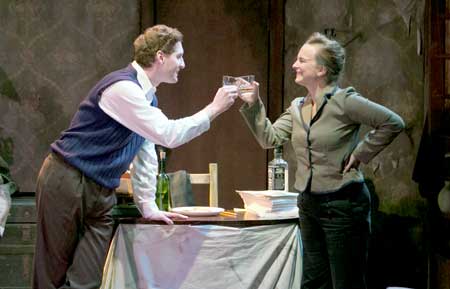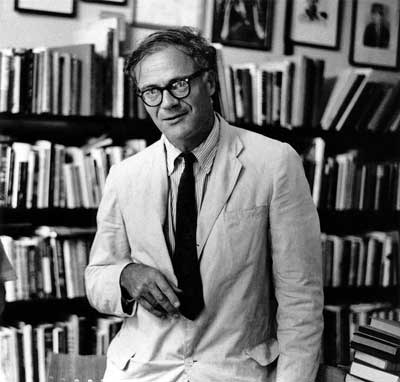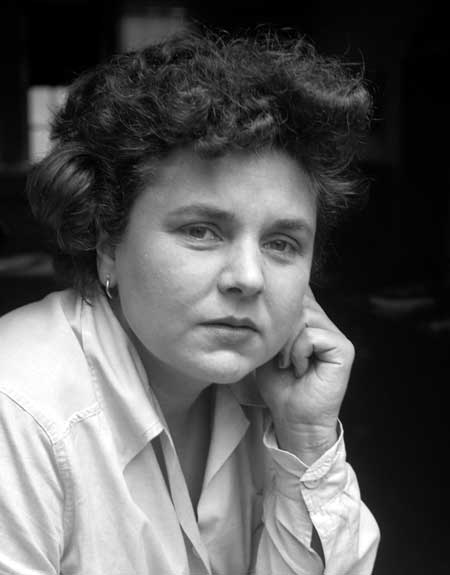Play (2012)
by Sarah Ruhl
Directed by A. Nora Long
Lyric Stage Company
Boston, MA
October 17 – November 9, 2014
With Laura Latreille (Elizabeth Bishop), Ed Hoopman (Robert Lowell)

Laura Latreille as Elizabeth Bishop
in “Dear Elizabeth”
Photo: Mark S. Howard
Courtesy of Lyric Stage Company of Boston
Robert Lowell and Elizabeth Bishop, titans of twentieth-century American poetry, were the best of friends. Not romantically involved, but deeply committed to one another artistically and personally, they wrote voluminously to one another over the course of the decades of their friendship. With artful selection from the eight hundred or so pages of their letters, playwright Ruhl has constructed a remarkably dramatic and thoughtful account of their relationship.
The entire text of this play is taken from the Lowell-Bishop letters and the art that Sarah Ruhl has brought to this very satisfying creation reflects an astuteness of judgement and a literary sense of economy that often barely skims the surface of entire episodes but, in doing it so deftly, opens doors to hidden worlds within. That sense of economy is not only satisfying in terms of the drama, but implicitly faithful to the nature of its subject: both Lowell and Bishop often exhibited, both in aspects of their demeanor and certainly in their poetry, a kind of judicious restraint.

Grolier Poetry Book Shop
Cambridge, MA
Photo: Elsa Dorfman
As well, they were both brilliant, emotionally vital, and complicated personalities, and the beauty of their literary interaction is its combination of vivid expressiveness and tautness.
The play works brilliantly well with a variety of complex themes: Lowell’s tenure as a mental patient at McLean Hospital in Belmont, Massachusetts, and Bishop’s love affair with a Brazilian woman architect, Lota. Lowell’s multiple marriages, with Jean Stafford, Elizabeth Hardwick and Caroline Blackwood figure in as well, all drawn quite clearly, as is everything in the play, through selections from the letters.

Photo: Elizabeth Bishop Society
Both actors, Laura Latreille (Elizabeth Bishop) and Ed Hoopman (Robert Lowell), are extremely good. This is a play of subtle feeling, of a passionate friendship that endured for many years, and the actors embody these subtleties, and the associated evolution of emotion over time, with compelling insight and sensitivity.
Latreille’s Bishop conveys a great, lonely intensity that explodes into her passionate affair with Lota, and which expands, as well, into her long and deep connection with Lowell. Hoopman gives us a Lowell whose mental complications are barely evident in his demeanor, but whose story of inner turmoil still surfaces as believable.
The set is ingeniously conceived, with opening traps to represent various beaches or lakes, with a kind of clothesline that allows the two actors to send messages across the stage, and of various perches and cubbyholes that give a sense of dimension to the various contexts of these poets’ lives.
It is kind of amazing how Ruhl conjures up a drama out of this, but she does, very effectively. And the Lyric has done an excellent job of rendering this concise, interlaced epistolary dialogue into a dramatic event of significant impact.
The play includes two acts of forty-five minutes each with a fifteen minute intermission. It is a relatively uncommon format for a ninety minute play these days, when one ordinarily would be expected to sit straight through. I found this more paced format very welcome and civilized, a nice way to take a breath along the way.
– BADMan
Leave a Reply